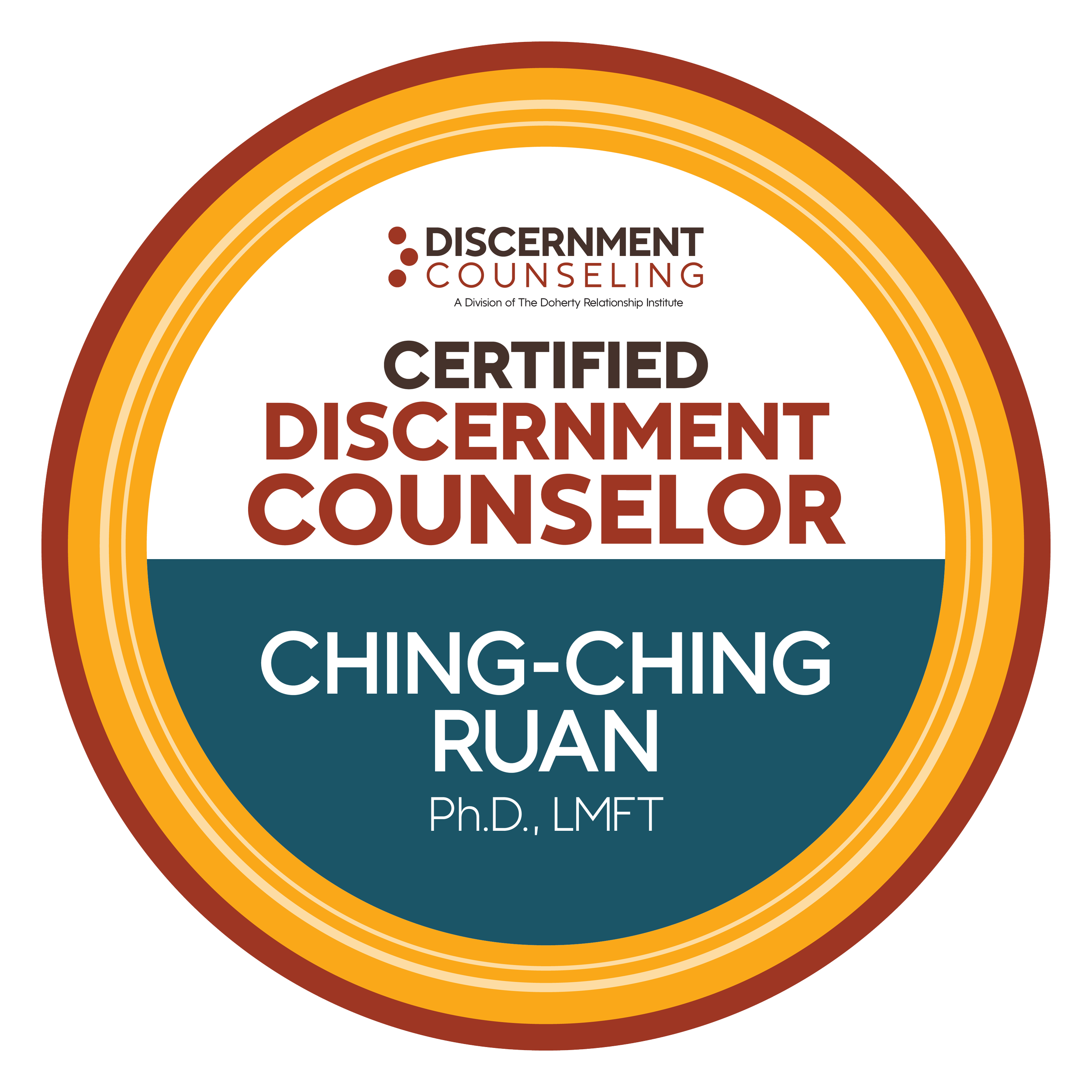
Discernment Counseling
HELPING PEOPLE GAIN CLARITY IN A CHALLENGING MARRIAGE
Your marriage is experiencing lots of challenges that leave you perplexed.
Your marriage leave you sour and disappointed. You’ve tried really hard to “fix it” and it is not for lack of time-in-counseling or dollars spent.
You feel conflicted, confused, stuck and unfulfilled in your relationship, with no resolution and closure.
Your marriage is not working, but you are concerned about collateral damage if you leave the relationship.
It seems like you are working much harder than your spouse to keep the marriage alive.
You keep asking , “Should I stay or should I go?”
I am trained in the art of Discernment counseling.
I can help you and your spouse understand how you arrive at this chapter in your marriage
I can help you and your spouse explore paths for the future.
I can help give you and your spouse space to consider your options.
-
Discernment Counseling is mainly for couples who are on the brink of divorce, or couples who are unsure if they want to stay married. Discernment counseling, in a nutshell, is basically decision making process deciding which one of the 3 paths you’d like to make a decision on—1) marriage remains the same; 2) separation / divorce; 3) putting divorce off the table and commit to 6-month marriage counseling.
Whereas, marriage counseling aims to improve marriage when the couple has the same goal in mind.
If a decision to end the marriage has already been made (even if it’s not been Clearly stated to the leaning in partner), then it is not an appropriate process as it gives false hope to the leaning in partner.
-
The decision is made on a session by session basis whether to continue with discernment counseling, to make no decision, or to choose one of the 3 paths (Path 1- staying the same; Path 2- proceeding to separation / divorce; Path 3: putting divorce off, committing to 6-month marriage counseling). The first session is 2 hours long. The first half hour is with both partners and a series of specific questions are asked about the relationship history. Then one partner stays in the therapy room while the other partner waits in the waiting area for the next half hour after which they switch places. The final half hour is with both partners back in the room to discuss what has been learned in the individual time. Any subsequent sessions will be 90 minutes long and will look similar to the first except the check in with both partners will be much more brief. The focus in these sessions will be to help the leaning out person make a decision on a path and to assist the leaning in person with the challenges of waiting for a decision to be made. Generally we will also try to increase the understanding of what each person brings to the problems in the marriage to better assist both people for future regardless of which path is chosen.
-
It is important to note that Discernment Counseling is basically decision making counseling. If a decision to end the marriage has already been made (even if it’s not been Clearly stated to the leaning in partner), then it is not an appropriate process as it gives false hope to the leaning in partner.
Certified Discernment Counselor - Ching Ching Ruan Ph. D, LMFT
